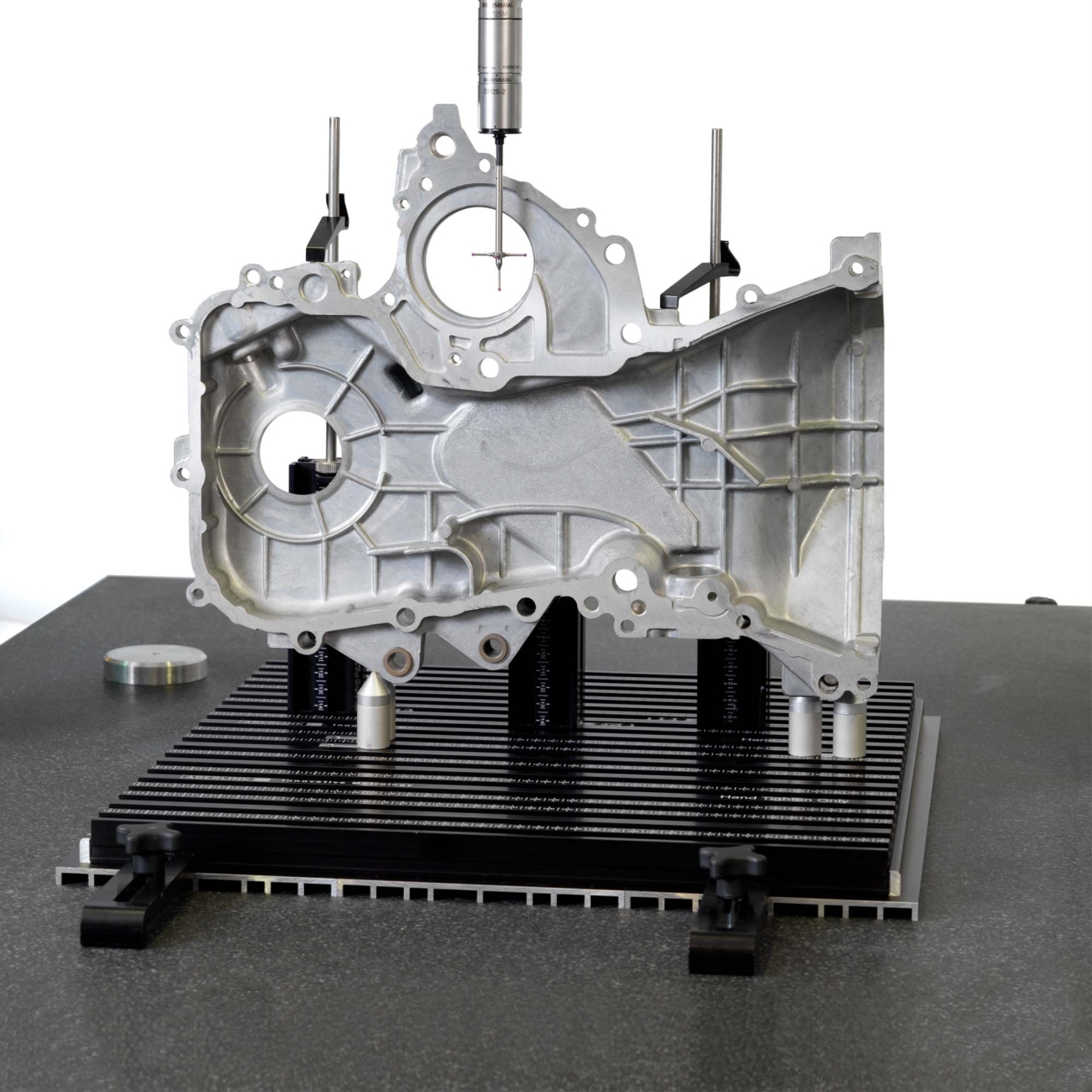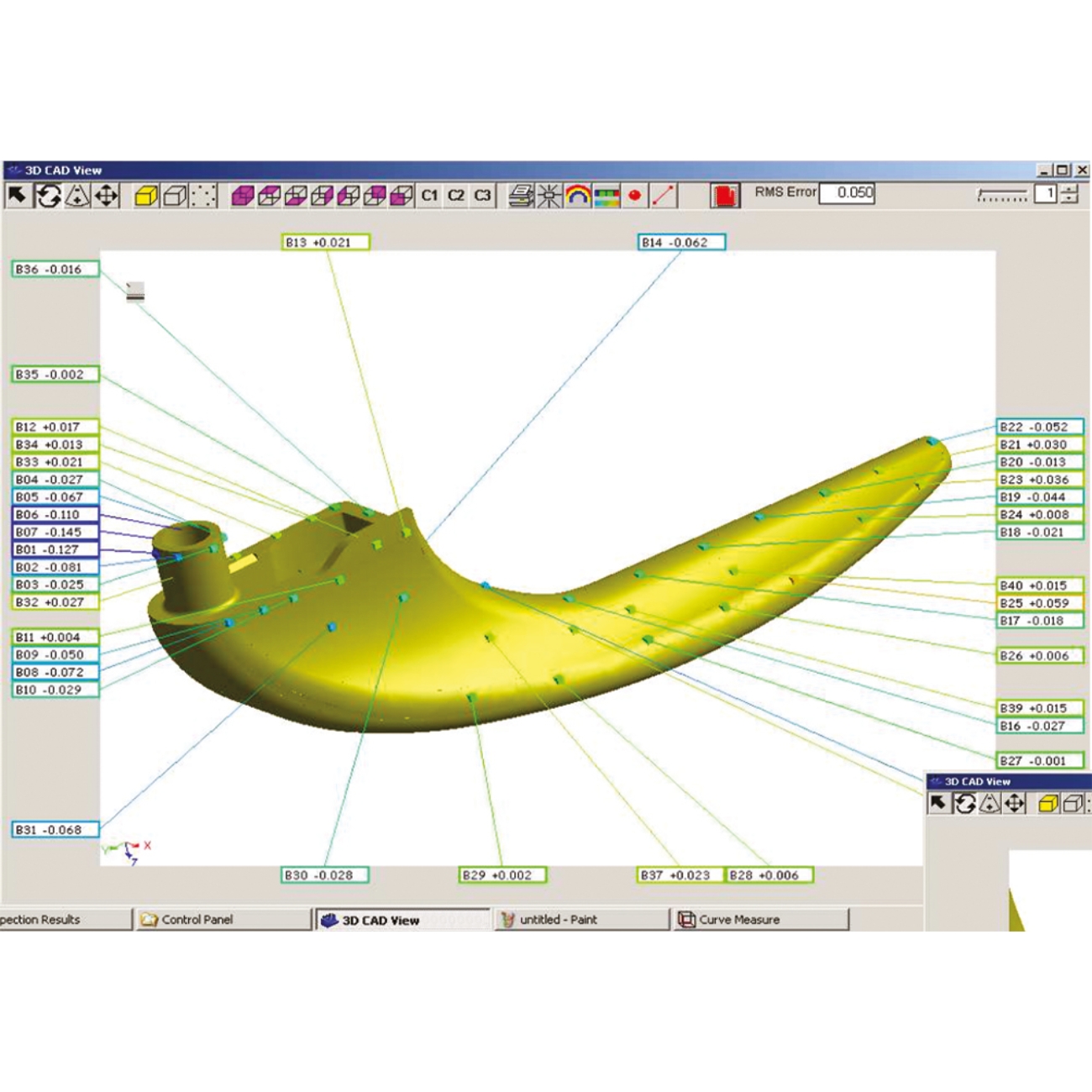CNC co-ordinate measuring machines (CMMs) are a key element in the modern machine shop landscape. These advanced tools are designed to guarantee precision and reliability when measuring complex components, helping to improve the quality and efficiency of production processes. In this in-depth look, we will explore in detail what CNC co-ordinate measuring machines are, how they work, their advantages and practical applications in industry.
Introduction to CNC co-ordinate measuring machines
CNC co-ordinate measuring machines, commonly known as CMMs (Coordinate Measuring Machines), are devices used to measure the physical dimensions of an object. These machines use a three-dimensional co-ordinate system to accurately determine the geometry of a part, allowing verification of compliance with design specifications. CMMs are equipped with a moving arm that moves along X, Y and Z axes, equipped with a probe that detects contact points on the surface of the part.
Operation of CNC co-ordinate measuring machines
The operation of CNC co-ordinate measuring machines is based on a computerised numerical control system that guides the movement of the probe. The probe, which can be contact or non-contact, collects data on the surface of the part, which is then processed by the machine software to generate a three-dimensional model. This model is compared with the original CAD drawing to identify any discrepancies and ensure that the part is within the specified tolerances.
Advantages of CNC co-ordinate measuring machines
The use of CNC co-ordinate measuring machines offers several advantages to machine shops. Firstly, the accuracy of the measurements minimises scrap and improves the quality of the final product. In addition, the speed and efficiency of CMMs allow quality control processes to be accelerated, reducing machine downtime and increasing overall productivity. CMMs are also extremely versatile, capable of measuring a wide range of components, from the simplest to the most complex.
Practical applications of CNC co-ordinate measuring machines
CNC co-ordinate measuring machines find application in a variety of industries, including automotive, aerospace, electronics and tool manufacturing. In the automotive industry, for example, CMMs are used to check the accuracy of engine and body parts, ensuring that each component fits perfectly in place. In the aerospace industry, CMMs are essential for checking critical tolerances of structural components, where even the slightest deviation can have significant consequences.
Frequently asked questions about CNC co-ordinate measuring machines
One of the most common questions concerns the difference between touch-trigger and non-contact probes. Touch probes physically touch the surface of the part to collect data, while non-contact probes use technologies such as lasers or white light to measure without physical contact. The choice between the two depends on the specific measurement requirements and the type of part material.
Another frequently asked question concerns the calibration of CMMs. It is essential to calibrate CNC co-ordinate measuring machines regularly to ensure measurement accuracy. Calibration must be performed by qualified personnel using certified reference instruments.
Conclusion
CNC coordinate measuring machines are indispensable tools for machine shops that strive for quality and efficiency. Thanks to their accuracy, speed and versatility, CMMs help to improve production processes and ensure that final products meet the highest standards. As technology continues to evolve, CNC co-ordinate measuring machines will continue to play a crucial role in the future of industrial manufacturing.
Showing all 16 results





















